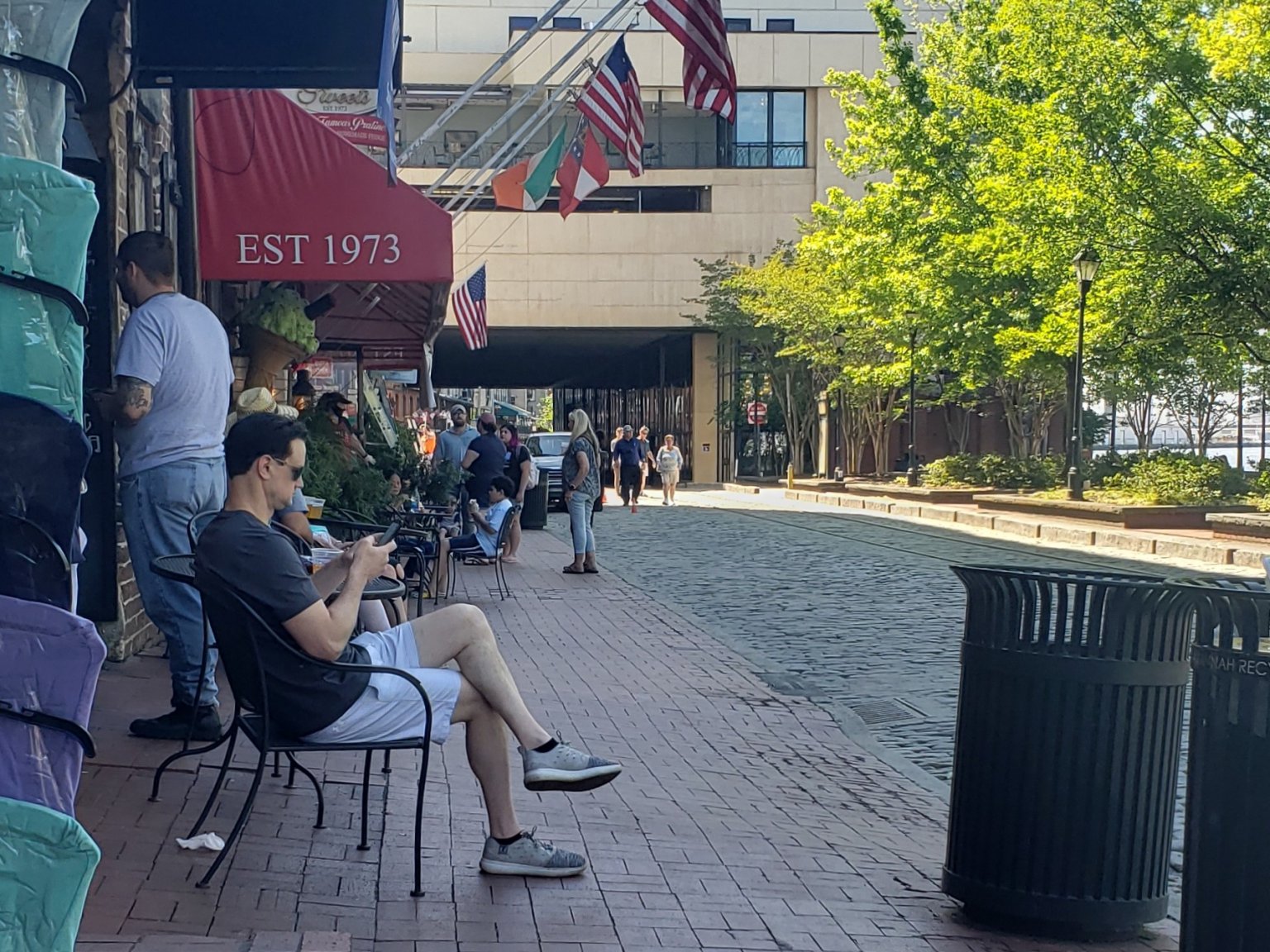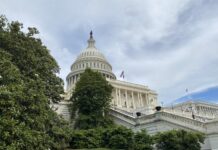
This story was updated to reflect that a study from the Institute for Health Metrics and Evaluation predicts the death rate will be cut in half if 95% of Americans wear face coverings.
Savannah Mayor Van Johnson issued an emergency order Tuesday requiring people to wear masks in public as the city’s riverside entertainment district is expected to pack in visitors for the Fourth of July holiday weekend.
The Savannah mayor’s emergency order stands in contrast with the voluntary approach to mask wearing urged by Gov. Brian Kemp as he and the state’s top public health official are set to visit a handful of cities to promote wearing face coverings to prevent the spread of the coronavirus.
Savannah is Georgia’s first major city to require people to wear face masks on while inside restaurants, bars and other businesses.
Johnson’s order conflicts with Kemp’s statewide public health executive order, issued in April and subsequently reset. Kemp has encouraged people to wear masks to contain the coronavirus, but has stopped short of mandating face coverings. Starting Wednesday, people who decline to wear masks in lots of Savannah’s public gathering spots will be subject to a $500 fine.
“The point of this order is not to be punitive,” Johnson said. “If we see someone without a face covering, the first thing we will do is offer them one. If that person refuses the face covering, that’s a different issue entirely.”
In a letter sent to Kemp Tuesday, Johnson said the city’s emergency order compliments Kemp’s goal to keep residents safe throughout the pandemic.
The city is following the advice of the Centers for Disease Control and Prevention that face coverings can slow down the infection rate as businesses along the Georgia coast struggle to stay open as the coronavirus cases spike and workers adapt to time-consuming safety protocols.
“As you are aware, Chatham County’s COVID-19 infection numbers have exploded over the last 3 weeks and there is no indication that this disturbing trend is reversing,” Johnson wrote.
At a recent press briefing, Kemp said he is counting on Georgians to voluntarily comply with safety guidelines and that he’s not comfortable legally requiring people to cover their mouths and noses. His most recent statewide emergency order says masks are “strongly encouraged,” but not mandated.
The multi-city tour that starts today presents more opportunities for the governor and Dr. Kathleen Toomey, head of the Georgia Department of Public Health, to spread the message about face coverings and the continued need for social distancing.
Wednesday, Kemp and Toomey are scheduled to embark on the “Wear a Mask” fly-around tour with visits to Columbus, Albany, and Valdosta. The tour is scheduled to wrap up Thursday in Dalton, Augusta, and Brunswick.
Savannah was initially a stopover on the governor’s itinerary, but was dropped from the list by Tuesday afternoon.
Savannah and surrounding Chatham County are reporting a sharp rise in COVID-19 infections in recent weeks, as the governor lifted restrictions to allow businesses to open and employees to return to work. On Sunday, Georgia set a single day record of confirmed coronavirus cases with 2,225 new cases reported by state public health officials.
While the number of cases grows, the 3.7% fatality rate is the lowest since April 15, according to the governor’s office.
Kemp is working with the Georgia Department of Emergency Management and Homeland Security staff to give out three million masks to local governments and schools.
The governor said Tuesday that as businesses gradually let customers back in their doors, emerging signs indicate the state’s economy is slowly rebounding as well.
“We are not out of the woods yet,” Kemp said Tuesday as he signed the state’s new spending plan that starts today. “There’s still more work to be done to protect the lives and the livelihoods of all Georgians. We have to remain vigilant in the days ahead.”
A new study from the Institute for Health Metrics and Evaluation says that if 95% of Americans wear cloth face coverings throughout July, then the number of COVID-19 related deaths could cut in half to through Oct. 1.
Georgia’s coastal communities got ahead of the state’s stay-home orders in April, shutting down beaches and businesses in patchwork fashion to discourage spring break crowds from gatherings that might spread the coronavirus. The governor’s emergency orders then overrode stronger restrictions imposed by cities and counties.







